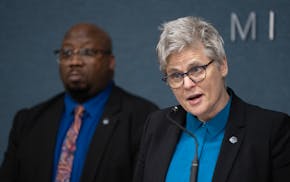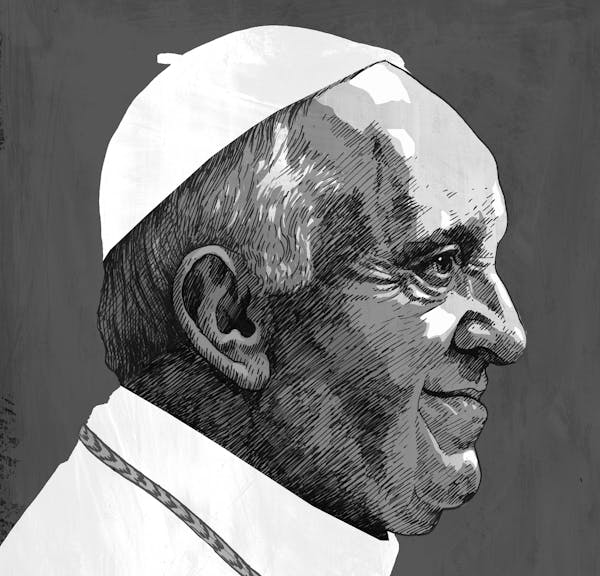I have often referred positively to the parish of my youth as the village that helped to raise me. I have used the term "village" in the same way Hillary Rodham Clinton did in her book, the title of which was attributed to an African proverb: It takes a village to raise a child. It has shaken me to the core to learn that one of the priests assigned to the parish of my youth is on "the list" that the Archdiocese of St. Paul and Minneapolis recently submitted to civil authorities. This is the list of priests for whom the church has credible evidence of sexual abuse. My four siblings and I all attended our parish school; my brothers served as altar boys. I thank God we came out whole.
Long before I learned that our parish priest appeared on this list, I had to ask myself how this kind of abuse could happen over and over in the Catholic Church. What was it that kept sexual crimes against children from seeing the light of day? I used to say that if I could understand something, I could accept it. But that is not the case here. I can never accept the fact that grown men — guardians of the church — came to seriously harm the very people they took vows to help. But I can share with you how I think these things came to be.
I am no longer Catholic, but I was for more than 60 years. During that time, I came to learn a fair amount about the culture of the church, and my focus in graduate school was on cultural anthropology.
Everyone knows that Catholic priests are not allowed to marry and that they take vows of celibacy. What kind of man is attracted to the priesthood? Well, for one, men who believe they can spend a lifetime not having sex with women. Now, for some, this is not a sacrifice. They are gay. I have personally known a number of them. If you were a homosexual Catholic male growing up in a homophobic society and did not care to ever have sex with women, becoming a priest might be seen as an attractive option. In the priesthood you could escape discrimination for your sexual orientation and be surrounded by people who share your spiritual goals and beliefs. I have repeatedly read that gay men do not engage in pedophilia any more than straight men do. But those straight men who are not priests have traditionally had many legitimate outlets for expressing their sexual desires. This has not been the case for celibate priests. I believe that when suppressed, even healthy sexual desires can become twisted. And what can be more twisted than preying on the very children one is charged with protecting?
What non-Catholics might not understand is how these kinds of activities could be kept secret for so long by administrators — administrators who might sincerely have believed they were doing the right thing. In the church, we were taught that if we confessed a sin, our priest could not share that information with anyone else. Priests go to confession, too. So if one priest confessed to another that he was abusive, that confession was seen as privileged information. And remember, these men belonged to the same fraternity of brothers, who knew the hardships and temptations all priests faced. They wanted the best for one another. So administrators found errant priests the professional help they believed was necessary and tried to help these sinners get on with their lives. It's also important to remember that the church preaches the forgiveness of sins. And that absolution isn't granted to sinners for serious sins unless the sinner promises to go and sin no more.
But even with such promises and with professional help, errant priests proved human. Like alcoholics who couldn't quit drinking, many if not most priests who abused continued abusing after treatment. And more innocent victims' lives were ruined.
I don't know how church administrators today square the rules we were taught in the past with today's realities. But they have had to learn an expensive lesson: that civil laws are meant to be kept and that the courts do exact their pound of flesh when the laws are broken. A new day has dawned, and not a moment too soon. It's too late for the victims of those on "the list," but hopefully, not for others.
Pat Ferguson Hanson is retired from teaching communications at the University of Wisconsin-River Falls.

BWCA's future likely hinges on election
Saving the dinosaurs: Why there's a future for community newspapers
Readers Write: Gun storage laws, Uber and Lyft, 24/7 businesses, the pipe organ


